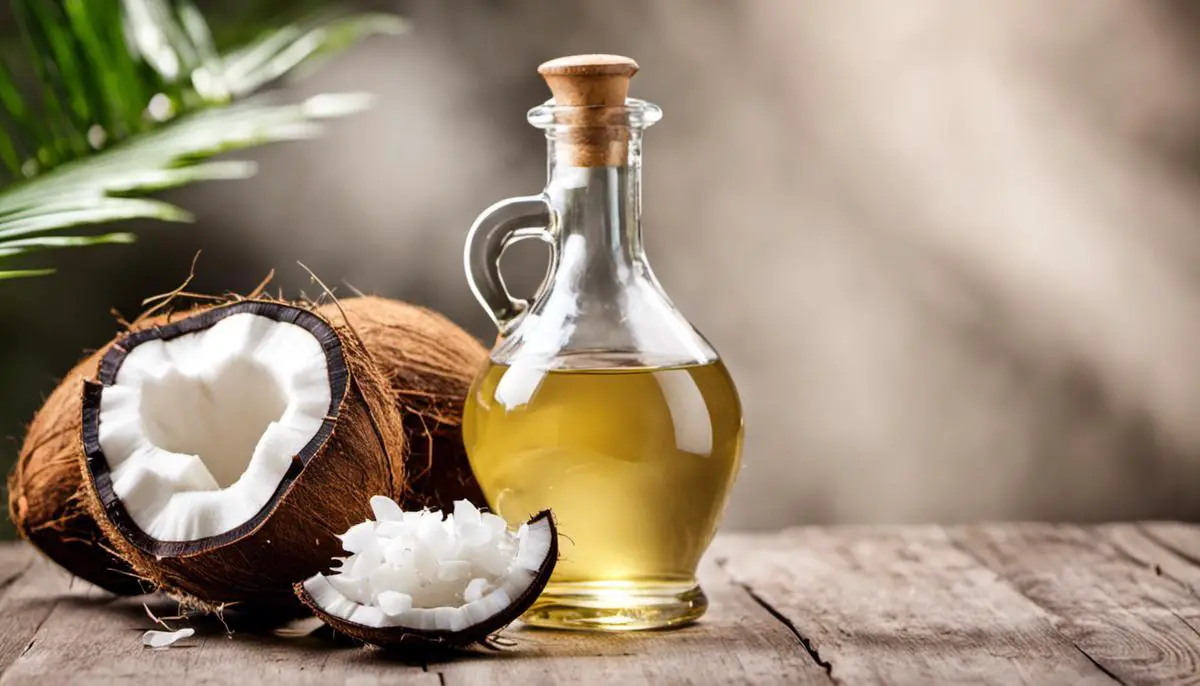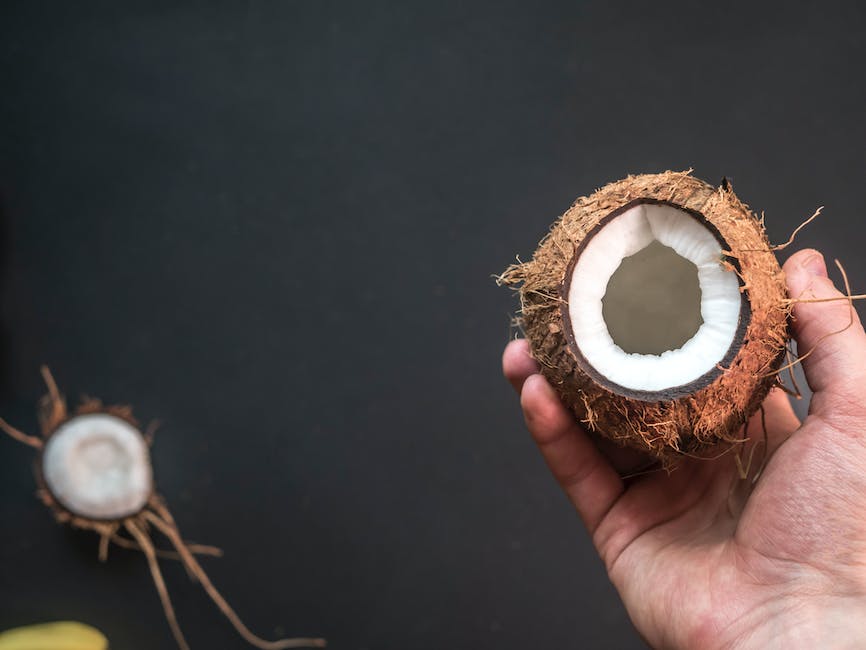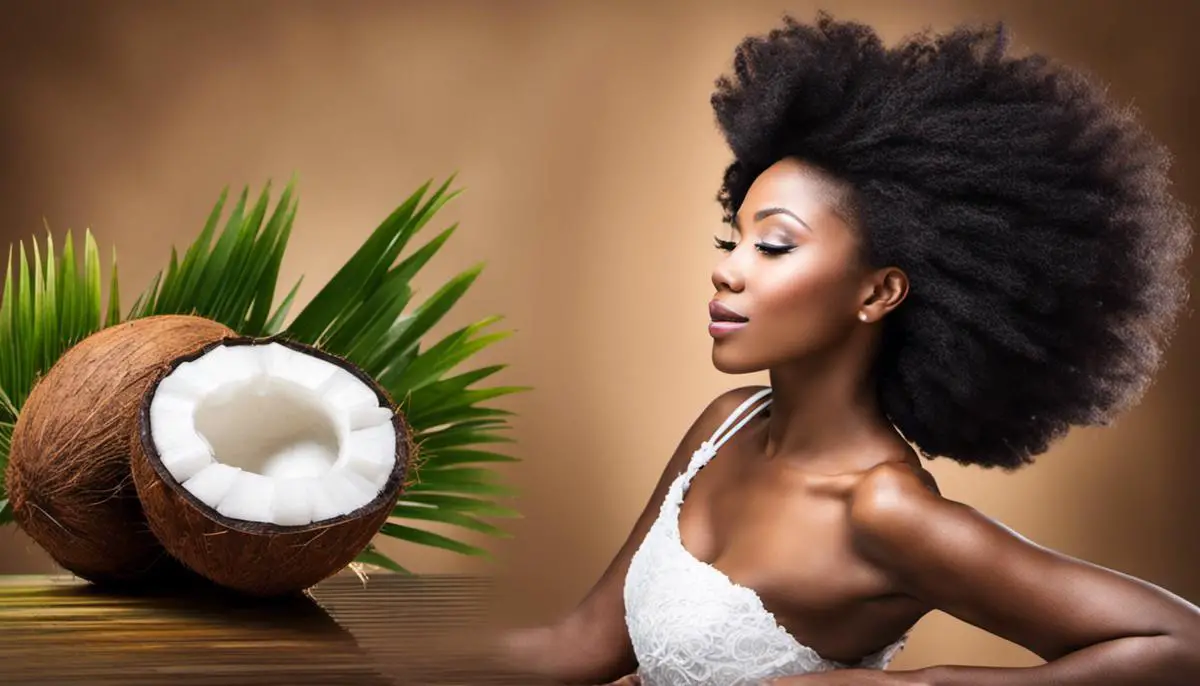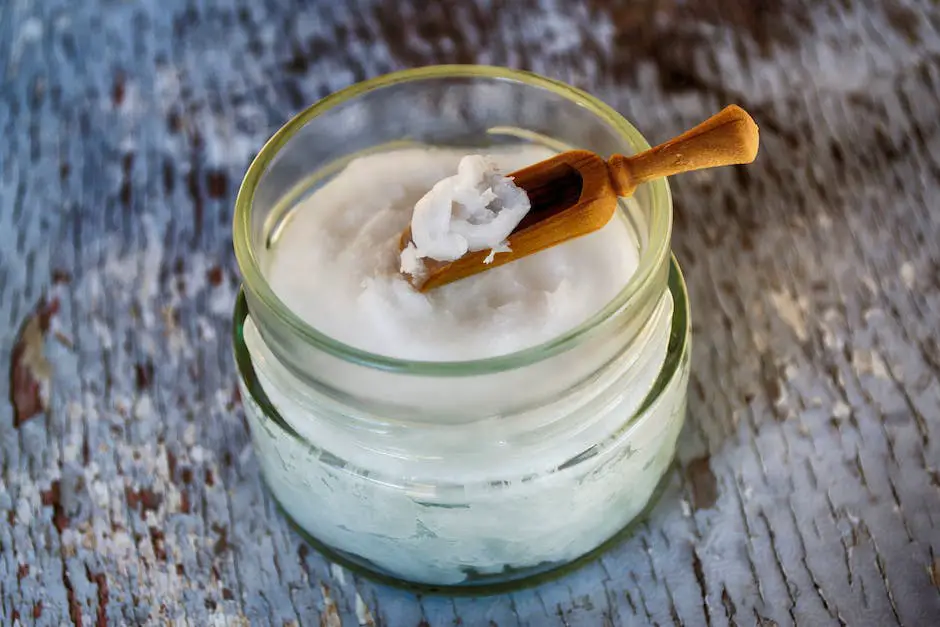African hair is a beautiful canvas of versatility and strength, yet it often presents unique challenges such as excessive dryness, breakage and, at times, slow growth. Comprehending the distinct structure and common concerns of African hair is critical in understanding why certain products, like Coconut oil, can be remarkably beneficial. Coconut oil, a natural powerhouse of hydration, antibacterial properties and nutrient richness, has over time proven to be an optimal-care solution for African hair. In this enlightening discussion, we delve into the myriad benefits that coconut oil has to offer African hair and also share valuable application tips to maximize these benefits.
Understanding African Hair
Understanding African Hair: Unique Characteristics and Common Concerns
African hair possesses a unique set of characteristics that differentiates it from other hair types. Structurally, it is naturally very curly and coil-like, often referred to as ‘kinky’ or ‘nappy’. This texture means that African hair is generally more fragile and prone to dryness. Each hair strand is elliptical in shape and spiral in form, causing a natural bending and twisting that can lead to structural stress points where the hair can easily break.
Coconut Oil and African Hair: A Perfect Match
Coconut oil is one of the few oils capable of penetrating the hair shaft. Due to its low molecular weight and straight linear chain, it can easily slip into the hair’s cortex, bringing much-needed moisture with it. This capability helps combat the inherent dryness typical of African hair.
Moreover, coconut oil is rich in lauric acid, a type of fatty acid that has an affinity for hair proteins. This means that it can help to replenish the lost proteins in hair strands, strengthening them and thereby reducing breakage.
Promoting Hair Growth with Coconut Oil
Slow growth is another common concern for many individuals with African hair. Coconut oil can help tackle this issue in a couple of ways. Firstly, by preventing breakage and minimizing protein loss, the hair can retain length more effectively, giving it a chance to grow longer.
Secondly, coconut oil contains antioxidants that can help boost scalp health. A healthier scalp paves the way for healthier hair growth. Coconut oil’s antimicrobial properties can also prevent dandruff, a common issue that often leads to hair loss.
Coconut Oil as a Conditioner and Detangler
Coconut oil makes an excellent conditioner for African hair. When used as a pre-shampoo treatment, it inhibits the swelling of hair strands that occurs when they absorb too much water. This phenomenon, known as hygral fatigue, can lead to cuticle damage and hair breakage.
Further, its slick texture makes it an excellent natural detangler for curly hair. A small amount of coconut oil can help unravel knots and tangles, making the hair easier to manage and style.
Overview: Utilizing Coconut Oil for African Hair Types
Coconut oil serves as a remarkable solution for the common issues associated with African hair types, such as dryness, breakage, and reduced speed of growth. With its unique ability to infiltrate hair strands, restore proteins, enhance scalp wellness, and function as a conditioner and detangler, it provides an all-in-one answer to maintaining healthy African hair. Frequent and appropriate use of coconut oil can lead to lustrous, robust, and resilient hair, enabling you to sport your natural hair with pride and confidence.

Basics of Coconut Oil
A Closer Look at Coconut Oil
Native to the coconut palm (Cocos nucifera), coconut oil is typically extracted by pressing the fresh white flesh of the coconut or via the dry-milling process – drying the flesh before pressing it. Recognized for its wide-ranging health benefits, it finds use in various scenarios, from cooking and skincare to natural remedies.
The properties of coconut oil that make it advantageous for hair care include its abundance of essential nutrients, such as vitamins E, K, and iron – all crucial for hair vitality. Its lauric acid-rich medium-chain fatty acids allow for deeper penetration into the hair shaft compared to other oils, nourishing and fortifying hair from the inside out.
Another key trait of coconut oil is its hygroscopic ability, attracting and holding water molecules. This characteristic lends itself excellently to hair care, infusing the much-required hydration into dry and damaged hair strands.
Moreover, the lauric acid present in coconut oil enhances its antibacterial and antifungal qualities. This provides the scalp protection against common afflictions like dandruff and folliculitis, an inflammation surrounding the hair follicles.
Unveiling the Benefits of Coconut Oil for African Hair
Proper care for African hair requires special attention due to its unique structure that’s often prone to dryness, frizz and breakage. Coconut oil, with its exceptional properties, can provide necessary hydration and protection. The oil’s ability to penetrate hair shafts is extremely effective in combating dryness and reducing breakage.
In addition to deeply moisturizing the hair, coconut oil also forms a protective barrier around the hair shaft. This reduces the hair’s exposure to damaging environmental factors and prevents protein loss during washing. This is vital for African hair which has intrinsic structural susceptibility.
Coconut oil also assists in mitigating the common issue of tangled textured or afro hair. The oil provides necessary slip to reduce friction between hair strands, simplifying detangling and minimizing the risk of breakage.
Its antibacterial properties help maintain a healthier scalp by tackling issues such as itching and dandruff, which are often more prevalent in textured hair.
Although coconut oil is excellent for African hair, keep in mind that too much of it can lead to build-up and weigh the hair down, reducing its volume. Its usage should be adjusted according to individual hair needs.

Benefits of Coconut Oil to African Hair
Illuminating the Moisturizing Benefits of Coconut Oil on African Hair
African hair’s dry texture, brought about by its curly or tightly coiled structure, often makes it difficult for natural scalp oils to migrate down the hair shaft. Here’s where coconut oil jumps in as an effective remedy for this concern. Thanks to its chemical structure, coconut oil––which is rich in lauric acid, a straight-structured type of fatty acid–– can penetrate the hair shaft more efficiently than other oils.
When applied to the hair and scalp, coconut oil launches an intensive moisture strike from within the hair shaft. This not only softens hair strands, making them more flexible, but also protects the hair from environmental damage. Dry hair is notably more vulnerable to harm from elements such as sunlight, wind, and humidity, making coconut oil’s moisture barrier an essential shield.
Combatting Hair Breakage with Coconut Oil
Hair breakage is another common issue experienced by individuals with African hair, primarily due to the inherent fragility of this hair type. Coconut oil can help alleviate this problem. Its ability to penetrate the hair shaft and moisturize from the inside out reduces the hair’s porosity, meaning each strand’s ability to absorb water is lowered. This is significant because hair that soaks up water quickly often swells, leading to cuticle lifting and subsequently hair breakage.
Moreover, coconut oil has proven benefits in reducing protein loss from hair. A study published in the Journal of Cosmetic Science found that coconut oil, when used as a pre- or post-wash grooming product, can help prevent protein loss from hair, which contributes to its strength.
Promoting Hair Growth with Coconut Oil
Coconut oil’s relationship with hair growth is multifactorial. Firstly, well-moisturized hair is less likely to break, allowing hair to grow longer without being snapped off mid-growth. Secondly, lauric acid in coconut oil has antimicrobial properties, which can keep your scalp healthy by combating bacteria and fungus that may hinder hair growth.
Another contributing factor is Coconut oil’s abundant supply of vitamins E and K, both of which are integral for overall hair health. While vitamin E promotes hair growth through its antioxidant properties, vitamin K contributes to hair strength.
Delving Into the Science and Benefits of Coconut Oil for African Hair
Unpacking the secret of why coconut oil is such a superfood for African hair involves breaking down its unique molecular structure and its essential nutrient composition. The presence of lauric acid, with its small and straight molecular chain, allows it to penetrate the hair shaft effectively. This same acid has an exceptional affinity for hair proteins, thereby preserving the hair’s natural molecular structure.
On top of this, coconut oil is loaded with vital vitamins, protective antioxidants, and other nutrients, fortifying it as a nourishing and defensive agent for the hair. As a result, it moisturizes hair, reduces breakage, and enhances overall hair health, making coconut oil a highly recommended aid in the care and maintenance of African hair.

Application Techniques of Coconut Oil
Uncovering the Potent Properties of Coconut Oil for African Hair
Coconut oil stands out for the important vitamins, minerals, and carbohydrates it contains, all of which collectively deliver incredible benefits to African hair. This includes the content of Vitamins E and K, along with iron, which are crucial nutrients for sustaining hair health. Moreover, the high concentration of lauric acid in coconut oil, given its simple molecular structure and straight linear form, can easily infiltrate the hair shaft offering deeper nourishment.
Hot Oil Treatment with Coconut Oil
One of the application techniques of coconut oil for African hair is through hot oil treatment. This process begins by warming the coconut oil until it is lukewarm. The warm oil penetrates the hair shaft more readily, offering more intense nourishment. Apply the warm oil evenly throughout your hair, ensuring every strand is covered. Massage the oil into your scalp to boost blood circulation and encourage wholesome absorption. After application, wrap your oiled hair in a warm towel and leave it for 15-20 minutes or longer for deep conditioning before rinsing.
Deep Conditioning Using Coconut Oil
Unlike the hot oil treatment, the deep conditioning method does not necessarily require the warming of the oil. You can apply the oil directly from your storage container onto your hair. The process, however, requires it to stay for a longer duration (could be overnight) to enable the hair fully absorb the oil providing intense moisturization and conditioning.
Appropriate Quantities of Coconut Oil
The amount of coconut oil to be used varies depending on individual hair needs and hair length. A general rule of thumb is to apply just enough oil to evenly coat your hair without it being overly greasy. Start small and gradually increase the amount based on your hair’s absorption rate and your personal satisfaction with the results.
Prospective Reactions to Coconut Oil
Generally, coconut oil is gentle and safe for use. However, different people might have varying responses to it. Some individuals may experience adverse reactions, such as allergies or skin irritation. These reactions are rare but possible. Hence, it’s advisable to do a patch test before fully applying it on your hair and scalp.
A Summary of How to Use Coconut Oil on African Hair
In wrapping up, if you’re thinking of using coconut oil on your African hair, consider the current state of your locks, their needs and your individual preferences. If you have damaged or dry hair, using coconut oil often, potentially two to three times a week, could yield beneficial results. If you’re using it for regular maintenance, once a week or every other week should be sufficient. Remember, it’s essential to take into consideration the possible benefits and responses to provide optimal care for your African hair with coconut oil.

Testimonials and Studies
User Satisfaction and Feedback When Using Coconut Oil on African Hair
Coconut oil has received glowing reviews from many people with African hair. They note that the oil has significantly improved their hair’s health and sheen. Some have said that frequent use of coconut oil has strengthened their strands and minimized splitting, an issue frequently encountered by people with African hair due to the hair’s tightly coiled nature and fragile structure.
People have also seen a boost in hair growth after consistently integrating coconut oil into their hair care routine. A number of users saw improvements within a few months, as coconut oil, when rubbed into the scalp, activates hair follicles and encourages growth.
A definite plus recounted by many users is the increased glossiness and smoothness of their hair after using coconut oil. The oil conditions and nourishes the hair, making it shiny and tamable. Remarkably, some have also found that it helps solve dry scalp problems, like dandruff, since coconut oil also moistens the scalp skin and facilitates a healthy hair growth environment.
Scientific Studies on the Benefits of Coconut Oil for African Hair
Scientific studies have validated the testimonials on the benefits of coconut oil for African hair. A study published in the Journal of Cosmetic Science found that coconut oil applied before and after hair washing protected African hair by reducing protein loss. The fatty acid structure of coconut oil allows it to penetrate the hair shaft more deeply compared to other oils, leading to better protection against damage and dryness.
Research in the International Journal of Trichology concluded that the lauric acid found in coconut oil has a high affinity for hair proteins. This property enables the oil to penetrate the hair shaft, ensuring moisture retention and decreasing water-related hair damage. This is especially beneficial for African hair, as it tends to be more porous and significantly more susceptible to moisture-related issues compared to other hair types.
A study from the Research and Development Department, Nature Care Division, Marico Industries Ltd, Mumbai, India, found that among mineral, sunflower, and coconut oils, only coconut oil reduced the protein loss remarkably for both undamaged and damaged hair when used as a pre-wash and post-wash grooming product. The use of coconut oil in hair care helps maintain the hair’s natural structural proteins, keeping it strong and healthy.
In short, the regular use of coconut oil on African hair provides numerous benefits – ranging from nourishment and moisturization to protection against protein loss. This information is backed up by a wealth of personal testimonials and numerous scientific studies firmly supporting the use of coconut oil in hair care.

As we’ve discovered, coconut oil is indeed a prize for African hair care, offering moisturizing, anti-breakage and growth-promotion benefits. These benefits are not only backed by a myriad of testimonials but also validated in scientifically-reviewed studies. However, knowing the benefits is just half the story: understanding how to properly apply coconut oil is just as important. With the right method, you can potentially transform and revitalize your hair, reflecting its ultimate health and sheen. As we continue to explore and understand our hair’s unique needs, we must keep in mind that nurturing it naturally with substances such as coconut oil is a step in the right direction.

Leave a Reply